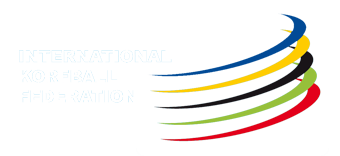Korfball around the globe: Albert Vidanya
You have ambitious plans to develop korfball globally, please enlighten us with your plans!
After last congress held in China during IKF World Korfball Championship 2011, was presented the next challenge for IKF: to be present in the Olympic Games. It will take some years to become an Olympic sport, but at least we need to target the numbers we want to achieve to start making this objective feasible:
- 75 recognized national organizations in 2023;
- 65 active countries;
- 50 countries with national championship;
- 45 countries entering 2015 IKF World Korfball Championship qualification;
- 55 countries with active youth policy.
From the side of the “Development and Education Committee” our goal is to give support to many young korfball communities, in order they become more stable. Therefore we give them many kinds of support: equipment, clinics, contacts with coaches, teams which can go on tour for trainings… with the condition they must set up plans and to build up some structure .
How close are we to olympic recognition?
We will be closer to Olympic recognition if the numbers mentioned as IKF targets are accomplished and there are more teams than the regular ones, as contenders to be in the IKF World Korfball Championship final. So these are not easy targets let’s say, but there is potential to make both things happening, and also IKF and both KNKV and KBKB, share the same vision about the need to make this happen.
Who will be world korfball champion in 2030?
Hopefully non an European team. On the other hand I would be much happier if half of the ten first teams at the final ranking are not European and at least one is from Africa or South America. This would mean that korfball will maintain constant evolution around the world apart from Europe, bringing new national organizations to challenge the ones are used to be at the top of the ranking.
What other countries are developing fast?
In terms of development there are two different spheres; one is the sphere of the starting korfball communities pretending to become stable national organizations. They are in the first part of the process, were a stable korfball community needs to be set up. In this part of the process the national organizations which look very well in terms of potential are Morocco, Ukraine and Argentina; to mention three different new korfball communities in different continents.
Another sphere of development is where national organizations try to grow from a lower level to a higher level in terms of IKF status, ranking and competitiveness. These organizations are adjusting their reality to make strong and ambitious plans, so they need some institutional support, some regular funding and key persons in the management of the federation as well as coaches who can lead the national team performance to higher ranked positions in official tournaments. In these terms China, Turkey and India have ambitious plans. I presume their goal will be to enter the top ten in next IKF World Korfball Championship in 2015.
How can korfball players around the world help korfball grow?
Specially top korfball players with coaching skills are appreciated, when they like to travel around the world and they are available to give clinics. In terms of cooperation with young korfball communities, we have a long list of backpackers in Asia, Australia or South America who contact us through our Facebook page: “Korfball Development IKF”, and say they are looking forward to cooperate giving some clinic to young players or just participating as referees in a tournament or a match.
I personally endorse this way of travelling: you get in touch with a korfball community in the other side of the world and you become part of it for some days; if you are open-minded and you like to travel to become a citizen of this community for some days, more than just a tourist, it is so rewarding for both sides: they receive some korfball knowledge and you receive some life-experience.
What makes korfball development so important?
On my opinion, IKF needs to challenge continental federations to develop new national organizations and to feed the existing ones to become more stable. As there is the “TOP 6 Program”, sponsored mainly by KNKV, that pretends to raise the level of performance of the B national teams to the highest level , there should be another program taking care of the development of national organizations that can grow from lower levels step by step. This is the portfolio of the “Development and Education Committee”, and together with continental federations we need to find the tools can develop the structure of small korfball communities in order to become stable national organizations, before they try to reach higher goals.
At the same time, our work is to implement the competitiveness of some areas where we find several countries with potential to grow. If we act collectively within several countries in the same area, our efforts will be more productive, and the level of recognition of our sport will grow much more.



